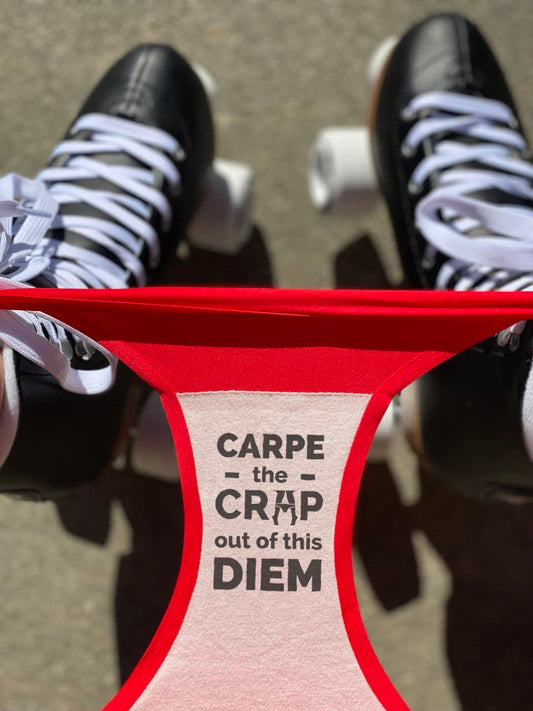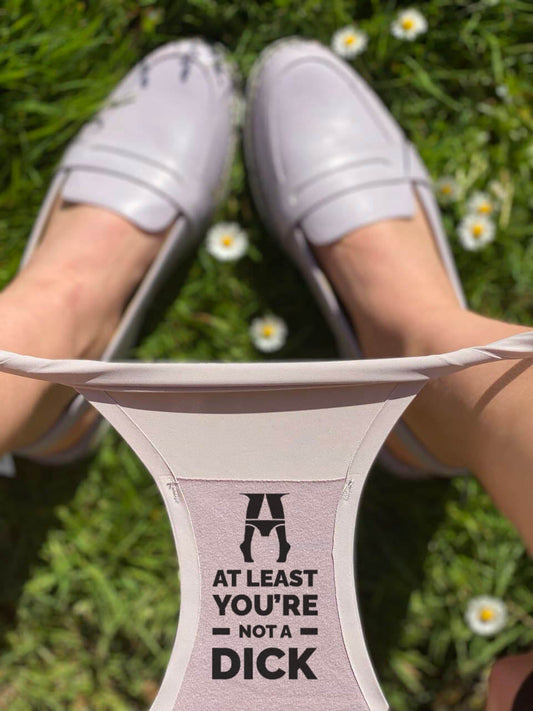
The Science of Sarcasm: Why Your Inner Cynic Might Be Your Best Therapist
Alice in UnderlandWelcome to Ask Alice, where we answer your burning questions about life, underwear, and everything in between. Today's topic: the therapeutic benefits of being a smartass.
Q: Alice, I've been told my sarcasm is "off-putting." Should I be concerned?
A: Off-putting? How delightful. Let me guess—someone who uses "live, laugh, love" unironically said this to you? Here's the thing: sarcasm is actually a sign of intelligence and creativity. Studies show that both delivering and receiving sarcasm requires more cognitive effort than straightforward communication. So basically, you're giving everyone around you a free brain workout. You're welcome, world.
Also, if we're being honest, the only thing truly off-putting is wearing uncomfortable underwear. But I digress.
Q: Can sarcasm actually be therapeutic?
A: Oh absolutely not. I'm just writing this entire column for fun. OF COURSE it can be therapeutic! Sarcasm is like a pressure release valve for your brain. It's how we cope with the absurdity of existence—like the fact that we're expected to "adult" every single day while our underwear rides up in the most inconvenient places.
Think of sarcasm as emotional armor. It protects your soft, vulnerable center (much like a good pair of briefs, actually) while allowing you to engage with the world's nonsense without losing your mind entirely.
Q: Is there a wrong time to be sarcastic?
A: Job interviews. Funerals. When someone asks if their new haircut looks good. And possibly when your partner asks, "Do these underwear make me look good?" (The answer is always yes, by the way. Always.)
But in general? Your inner cynic is there for a reason. It's your bullshit detector, your reality checker, your personal truth-teller. Honor it. Just maybe not at Grandma's birthday party.
Q: How do I know if I'm using sarcasm as a healthy coping mechanism or just being mean?
A: Excellent question, and I'm genuinely impressed you're self-aware enough to ask it. Here's the test: Is your sarcasm punching up (at absurd situations, societal nonsense, or your own foibles) or punching down (at people who are vulnerable or already having a hard time)?
Good sarcasm is like good underwear—it supports you without cutting anyone down. Bad sarcasm is like a wedgie you give someone else. Don't be a wedgie-giver.
Q: Alice, why do you keep bringing up underwear in a column about sarcasm?
A: Because, dear reader, both sarcasm and quality underwear serve the same essential purpose: they help you navigate the world with confidence and comfort. They're both deeply personal choices that affect how you feel about yourself, even if nobody else knows what's going on beneath the surface.
Plus, if you can't laugh about the fact that we're all just sophisticated primates obsessing over fabric that covers our butts, then what's even the point?
Q: So what's the bottom line here, Alice?
A: The bottom line is this: Your sarcasm isn't a character flaw—it's a survival skill. It's how you process the ridiculous, cope with the frustrating, and maintain your sanity in a world that often feels like it's run by people who peaked in high school.
Embrace your inner cynic. Let them be your therapist, your truth-teller, your guide through the absurdity. Just remember to balance it with genuine kindness, self-awareness, and—for the love of all that is holy—comfortable underwear.
Because life's too short for toxic positivity AND uncomfortable undies.
Got a question for Alice? She's got opinions about everything and the sarcasm to back them up. Send your questions to... well, just imagine you did, and she'll probably answer them sarcastically anyway.
P.S. Speaking of supporting your bottom line (see what I did there?), if you're still wearing underwear that makes you question your life choices, maybe it's time for an upgrade. Not saying, just saying. Your inner cynic—and your outer comfort—will thank you.




